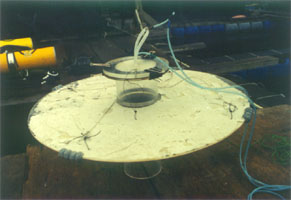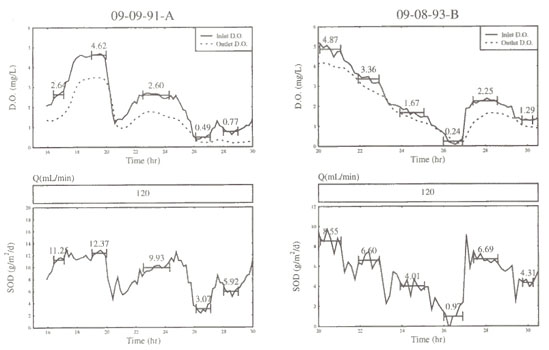Sediment Oxygen Demand (SOD) in Coastal Waters
Investigators:
- Prof. Joseph Hun-wei Lee
- Dr. Paul C. K. Chu
¡@
Introduction
|
The sediment oxygen demand (SOD) is the rate of the dissolved oxygen consumption in a water body (river, lake or ocean) due to the decomposition of organic matter deposited on the bottom sediment. In shallow nutrient-rich coastal waters in Hong Kong, where algal blooms frequently occur, very high SOD (due to the decomposition of settled algal detritus) has been measured. This may lead to severe oxygen depletion, resulting in massive fish kills. The SOD is often a significant component of the dissolved oxygen budget; its determination provides an important input to mathematical models used in water quality control and environmental impact assessment studies. ¡@ |
|
|
SOD chamber |
¡@
¡@
A novel continuous-flow
in-situ benthic chamber with optimal hydraulic design has been developed
to measure SOD in the field. Supported by extensive field and laboratory
tests, the simple and robust device has given consistent and reliable
measurements in both well-mixed and stratified waters over a wide range
of natural conditions. The SOD is found to depend significantly on the
hydraulics of the chamber and the dissolved oxygen level of the bottom
water.
¡@
|
|
|
Examples of SOD dependence on DO measured in the field ¡@ |
¡@

